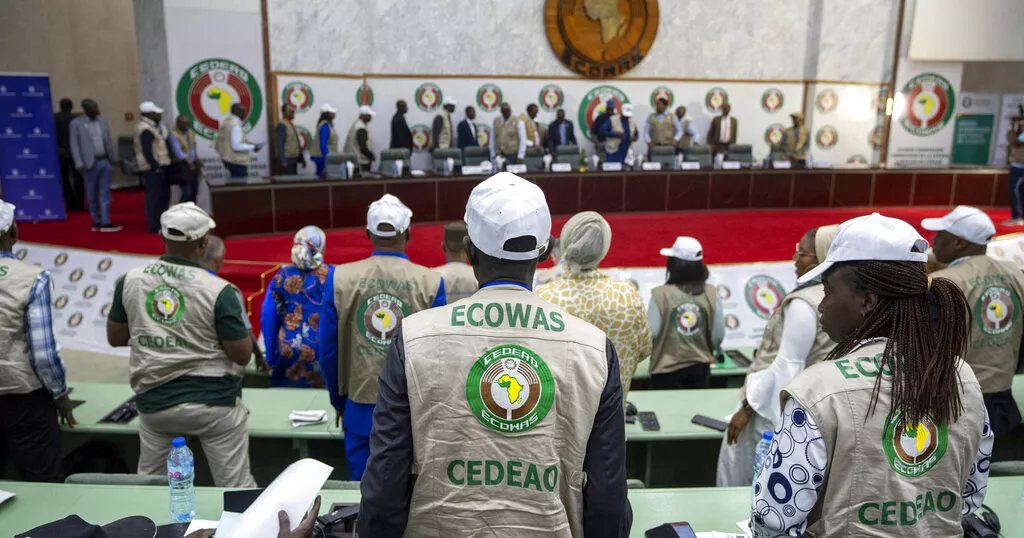
Nigeria: ECOWAS discusses democratic transitions and security
According to the Economic Community of West African States (ECOWAS), four member countries discussed democratic transitions and security in the region during a meeting held in Nigeria on Tuesday. Nigerian President Bola Tinubu, who was recently elected as ECOWAS President, engaged in talks in Abuja with officials from Niger, Guinea-Bissau, and Benin.
A significant topic of discussion was security in Mali following the withdrawal of the UN mission (MINUSMA), which was created in 2013 to combat the growing jihadist threat in the country. The UN Security Council ended the MINUSMA peacekeeping mission at the request of the Malian military junta, which has taken a critical stance towards Western involvement and has strengthened its ties with Russia.
The region has been facing multiple challenges, as three ECOWAS member countries—Mali, Burkina Faso, and Guinea—are currently under military juntas due to recent military coups (five since 2020). Additionally, jihadist groups like Al-Qaeda and Islamic State have expanded their attacks southward to countries in the Gulf of Guinea from the Sahel.
Nigeria, Benin, and Guinea-Bissau have formed a tripartite commission with the support of Niger to seek alternative security solutions in Mali following the UN mission’s withdrawal. One option being considered is the possible deployment of soldiers from ECOWAS countries.
To address these issues, the President of Benin, Patrice Talon, will be traveling to Mali, Burkina Faso, and Guinea on behalf of the task force, to discuss security and democratic transitions after the military coups.
During the Abuja meeting, the four countries reiterated their support for swift democratic transitions in the affected countries and expressed their commitment to providing a robust security response, including the potential deployment of troops from ECOWAS nations. Notably, last December, ECOWAS countries decided to create a regional force dedicated to intervening against both jihadism and coups, but further details regarding its structure and funding remain to be clarified.

